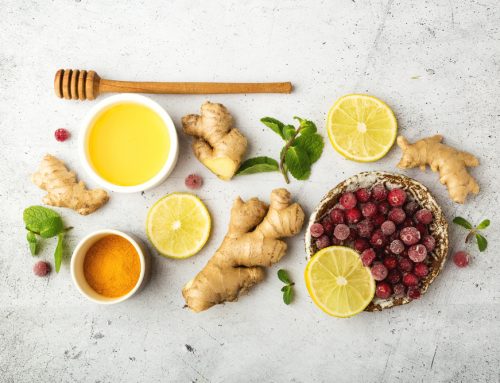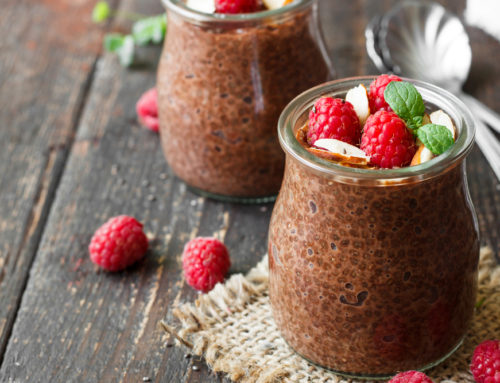Dr. Kathleen Regan is one of the co-founders and naturopathic doctors at Innate Wellness. She works a lot with families and kids. We asked… what are the most common health question from families? Apparently, this is a tough question to answer because families come in for all sorts of things from basic nutrition advice to skin conditions. But, at this time of year, she gets asked a lot of questions about the cold & flu. Read more on our interview with Dr. Regan.
Can Naturopathic Medicine treat the Cold & Flu?
Of course! Cold & flu treatment begins with prevention. This starts with the basics like staying active, eating balanced meals & seasonal foods, dressing appropriately for the weather and keeping stress managed. But when a cold or flu strikes, natural medicine is one of the best options to try first! Why? Most colds and flus are viral in origin – antibiotics don’t work here. But there are many wonderful herbs that have antiviral effects. These can be taken in soups or as teas, tinctures and supplements. Many people don’t know how effective naturopathic medicine can be in these cases so we often see patients after they have tried everything else. I like to remind my patients ahead of flu season to book in for a flu prevention visit or an acute check-in visit when the flu strikes before they try more conventional routes.
So families should prepare ahead of cold & flu season? When should they begin?
Here in Canada, cold & flu season lasts from late October to early May. That is a long stretch! Obviously, this season comes with the cold weather. So a big part of prevention is staying warm. Yes, you can catch a cold! The immune system is depressed by damp and cold temperatures making us more susceptible to infection. Wear a hat, mits and a warm coat!
Also, eating seasonally is very important. Eat foods that keep you warm in the fall and winter by consuming less raw food and more cooked food. Soups, stews and heartier foods keep us warm but also provide us with the sustenance for colder temperatures. Certain super spices like garlic, ginger, cinnamon, raw honey and tumeric can be great food-based immune boosters and natural antibiotics.
Finally, check in with us to see what vitamin or mineral supplements may be recommend for the winter season. Supplementation can be seasonal and may change during the winter months.
What are your thoughts on the flu vaccination?
This is a controversial question but I get asked it a lot! With vaccinations, I am supportive of a family choice to vaccinate or not vaccinate so long as it is based on facts. I provide an educational role to fill in the gaps.
It is well known that the effectiveness of the flu shot is variable from season to season and from person to person. For example, the flu vaccination is made ahead of flu season (typically in February of the prior year) based on the most current viral strains. However, these strains can change quickly and by October they are no longer a match for the current viral strain. In these cases the flu vaccination is not very effective. In 2013-14, the flu vaccine in Canada provided almost zero protection against the circulating flu while in 2015-16 it provided roughly 45-50% protection. Experts used to believe it provided 70-90% protection but these studies were based on industry funded clinical trials – not real life.
In addition, the flu vaccination is strongly recommended for the very young, the very elderly and people with certain medical conditions such as diabetes, asthma, cancer and other immune compromise. However, these individuals show less immunity against the flu post-vaccine because the vaccine does not work as well for them. However, 50% coverage in these individuals can make a life or death difference (depending on the year and strain accuracy). In these cases a flu shot can be smart.
Finally, it is important to know that the flu shot specifically protects against flu strains but not the common cold or pneumonia which are typically caused by other viral or bacterial strains.
My opinion as a primary healthy care provider is that getting sick once per year with the flu, for strong and healthy individuals is not a bad thing. It helps people to build natural immunity. In a strange way, it also forces people to reflect on self-care. I do not see a strong amount of evidence for vaccinating health older children or adults against the flu unless they are working in health care or nursing ill family members at home. Although, I support a patient’s decision to receive the flu shot, it is my preference that they consider natural immune support instead.
Any tips for families dealing with a household of sniffles, coughs and fevers?
First, it is important to know the difference between the cold and the flu because the flu can have more serious consequences. The flu patient typically experiences a high fever, headache, body aches, extreme fatigue and cough. The common cold presents with relatively little fever, mild fatigue, mild cough and more significant sneezing. With families I teach them different herbs and therapies to use in these different cases, how to manage a fever naturally, how to feed their children during the flu vs. the cold, and when to know it’s time for a trip to their family doctor.
What are your favorite cold & flu remedies?
This is so individual! But I’d have to pick the ingredients of our cold & flu tea since it works so well and can be used for prevention. Elderberry, Astragalus, Echinacea, Ginger, Cinnamon & Licorice. These herbs boiled in a pot of water are nourishing, hydrating, warming, calming and anti-microbial.





